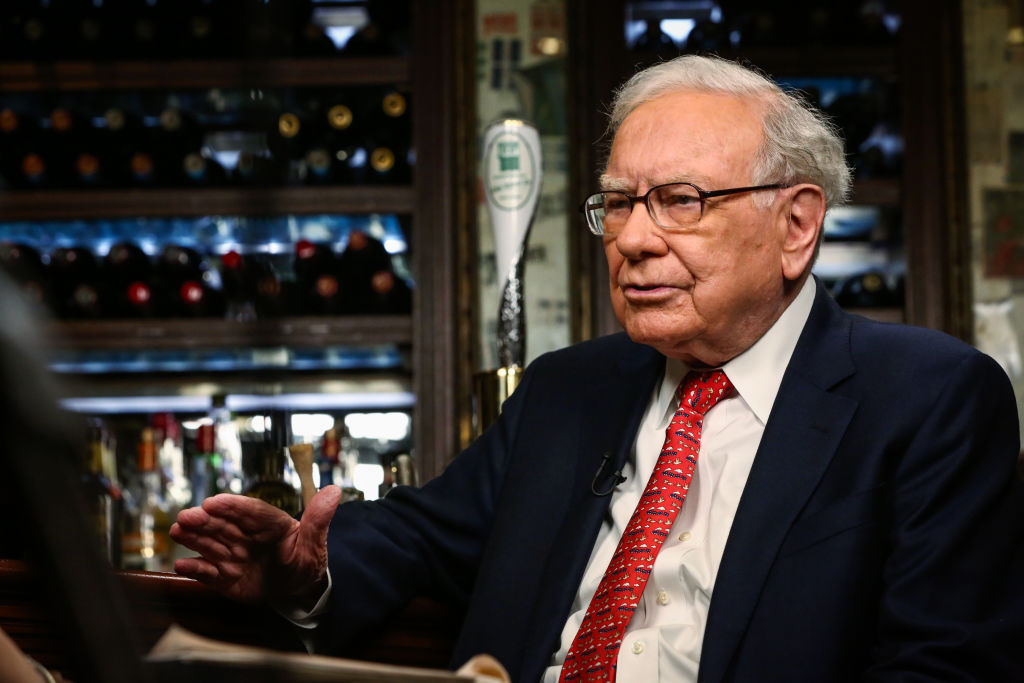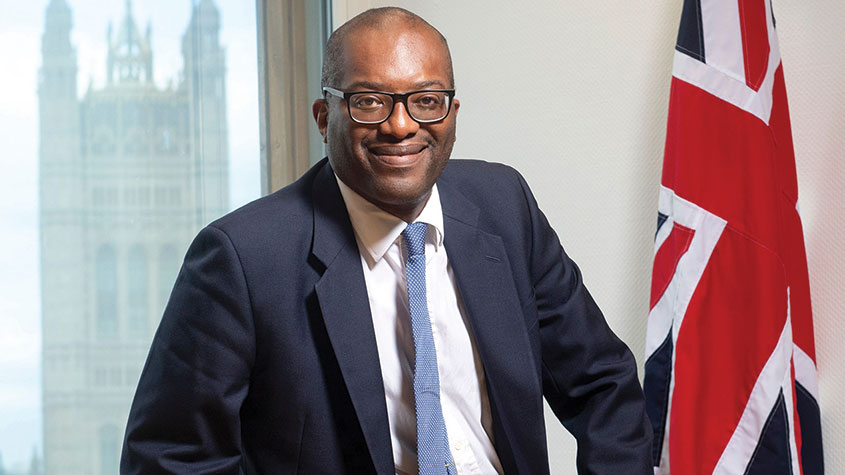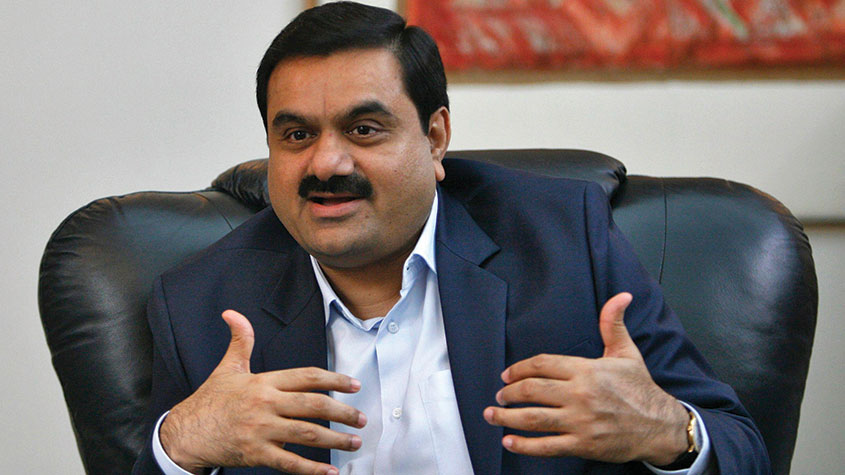Bill Gates: the rebooting of a reputation
Microsoft’s founder Bill Gates was once widely criticised as a merciless monopolist. But he has tried to reinvent himself as a global health philanthropist. The coronavirus crisis is his biggest challenge yet.
Get the latest financial news, insights and expert analysis from our award-winning MoneyWeek team, to help you understand what really matters when it comes to your finances.
You are now subscribed
Your newsletter sign-up was successful
Want to add more newsletters?

Twice daily
MoneyWeek
Get the latest financial news, insights and expert analysis from our award-winning MoneyWeek team, to help you understand what really matters when it comes to your finances.

Four times a week
Look After My Bills
Sign up to our free money-saving newsletter, filled with the latest news and expert advice to help you find the best tips and deals for managing your bills. Start saving today!
“The only thing that keeps me awake at night is the thought of a pandemic,” Bill Gates told The Times a year ago. “It’s been 100 years since we had a huge flu epidemic.” So now that his “worst nightmare has come true”, Gates has thrown the huge resources of the Bill and Melinda Gates Foundation (set up “to eradicate diseases”) into the fight against Covid-19 – cementing his image as the world’s most can-do philanthropist.
Routinely described by younger tech moguls as “a visionary role model”, Gates, 64, has seen “several reboots of his public image”, since becoming a billionaire at the age of 31, says The Wall Street Journal. Has this merciless monopolist found his calling as the selfless saviour of the world?
The child is the father of the man
As a child, Gates’ two favourite games were Risk (where the object is world domination) and Monopoly, says Entrepreneur. He and Microsoft co-founder Paul Allen first went into business while still at school in the early 1970s, developing a program called Traf-O-Data to measure traffic flow in the Seattle area. That netted them the not-inconsequential sum of $20,000.
MoneyWeek
Subscribe to MoneyWeek today and get your first six magazine issues absolutely FREE

Sign up to Money Morning
Don't miss the latest investment and personal finances news, market analysis, plus money-saving tips with our free twice-daily newsletter
Don't miss the latest investment and personal finances news, market analysis, plus money-saving tips with our free twice-daily newsletter
In 1973, Gates headed for Harvard. “By his own admission he was there in body but not in spirit, preferring to spend his time playing poker and video games.” So by 1975, he had dropped out to develop a version of BASIC, a popular computer language, for the Altair 8800, the world’s first microcomputer. Gates and Allen went on to write code for other start-ups, including Apple and Tandy.
They hit the jackpot in 1979 when Gates learned that the industry’s biggest player, IBM, lacked an operating system for its new PC. Microsoft bought an existing OS for $50,000, developed it into MS-DOS and licensed it to IBM. The “genius” of the deal Gates masterminded, says Entrepreneur, was that Microsoft retained the right to license the software to other computer makers. The market was soon packed with IBM clones and Microsoft cleaned up. The release of Word in 1983 then captured the market for office software. Three years later Microsoft went public and Gates retained a sizeable stake – setting him up for a reign as the world’s richest man from 1995 to 2007.
Defending dominance
“The aggressive business tactics” and “ruthless determination” Gates showed as he created markets and fought to defend Microsoft’s dominance over them (ably aided by his bull-like lieutenant Steve Ballmer), “attracted a vast army of critics”, observed a contemporary BBC profile. Gates became “a hate figure for many technology evangelists” who railed against Microsoft’s bulldozing, monopolistic ways. That has faded as he sat back and allowed Satya Nadella to lead a newly “ethical” Microsoft into cloud computing, where it has shone. But he still attracts trenchant opposition.
Gates has discovered that the easiest path to political power – “one that allows unelected billionaires to shape public policy in ways that almost always generate favourable headlines” – is “charity”, argues The Nation. Maybe so – but in this climate, that seems almost nit-picking. As Gates said last week, the fight against the virus is like a world war, “except in this case we’re all on the same side”.
Get the latest financial news, insights and expert analysis from our award-winning MoneyWeek team, to help you understand what really matters when it comes to your finances.
Jane writes profiles for MoneyWeek and is city editor of The Week. A former British Society of Magazine Editors (BSME) editor of the year, she cut her teeth in journalism editing The Daily Telegraph’s Letters page and writing gossip for the London Evening Standard – while contributing to a kaleidoscopic range of business magazines including Personnel Today, Edge, Microscope, Computing, PC Business World, and Business & Finance.
-
 How a ‘great view’ from your home can boost its value by 35%
How a ‘great view’ from your home can boost its value by 35%A house that comes with a picturesque backdrop could add tens of thousands of pounds to its asking price – but how does each region compare?
-
 What is a care fees annuity and how much does it cost?
What is a care fees annuity and how much does it cost?How we will be cared for in our later years – and how much we are willing to pay for it – are conversations best had as early as possible. One option to cover the cost is a care fees annuity. We look at the pros and cons.
-
 VICE bankruptcy: how did it happen?
VICE bankruptcy: how did it happen?Was the VICE bankruptcy inevitable? We look into how the once multibillion-dollar came crashing down.
-
 What is Warren Buffett’s net worth?
What is Warren Buffett’s net worth?Warren Buffett, sometimes referred to as the “Oracle of Omaha”, is considered one of the most successful investors of all time. How did he make his billions?
-
 Kwasi Kwarteng: the leading light of the Tory right
Kwasi Kwarteng: the leading light of the Tory rightProfiles Kwasi Kwarteng, who studied 17th-century currency policy for his doctoral thesis, has always had a keen interest in economic crises. Now he is in one of his own making
-
 Yvon Chouinard: The billionaire “dirtbag” who's giving it all away
Yvon Chouinard: The billionaire “dirtbag” who's giving it all awayProfiles Outdoor-equipment retailer Yvon Chouinard is the latest in a line of rich benefactors to shun personal aggrandisement in favour of worthy causes.
-
 Johann Rupert: the Warren Buffett of luxury goods
Johann Rupert: the Warren Buffett of luxury goodsProfiles Johann Rupert, the presiding boss of Swiss luxury group Richemont, has seen off a challenge to his authority by a hedge fund. But his trials are not over yet.
-
 Profile: the fall of Alvin Chau, Macau’s junket king
Profile: the fall of Alvin Chau, Macau’s junket kingProfiles Alvin Chau made a fortune catering for Chinese gamblers as the authorities turned a blind eye. Now he’s on trial for illegal cross-border gambling, fraud and money laundering.
-
 Ryan Cohen: the “meme king” who sparked a frenzy
Ryan Cohen: the “meme king” who sparked a frenzyProfiles Ryan Cohen was credited with saving a clapped-out videogames retailer with little more than a knack for whipping up a social-media storm. But his latest intervention has backfired.
-
 The rise of Gautam Adani, Asia’s richest man
The rise of Gautam Adani, Asia’s richest manProfiles India’s Gautam Adani started working life as an exporter and hit the big time when he moved into infrastructure. Political connections have been useful – but are a double-edged sword.